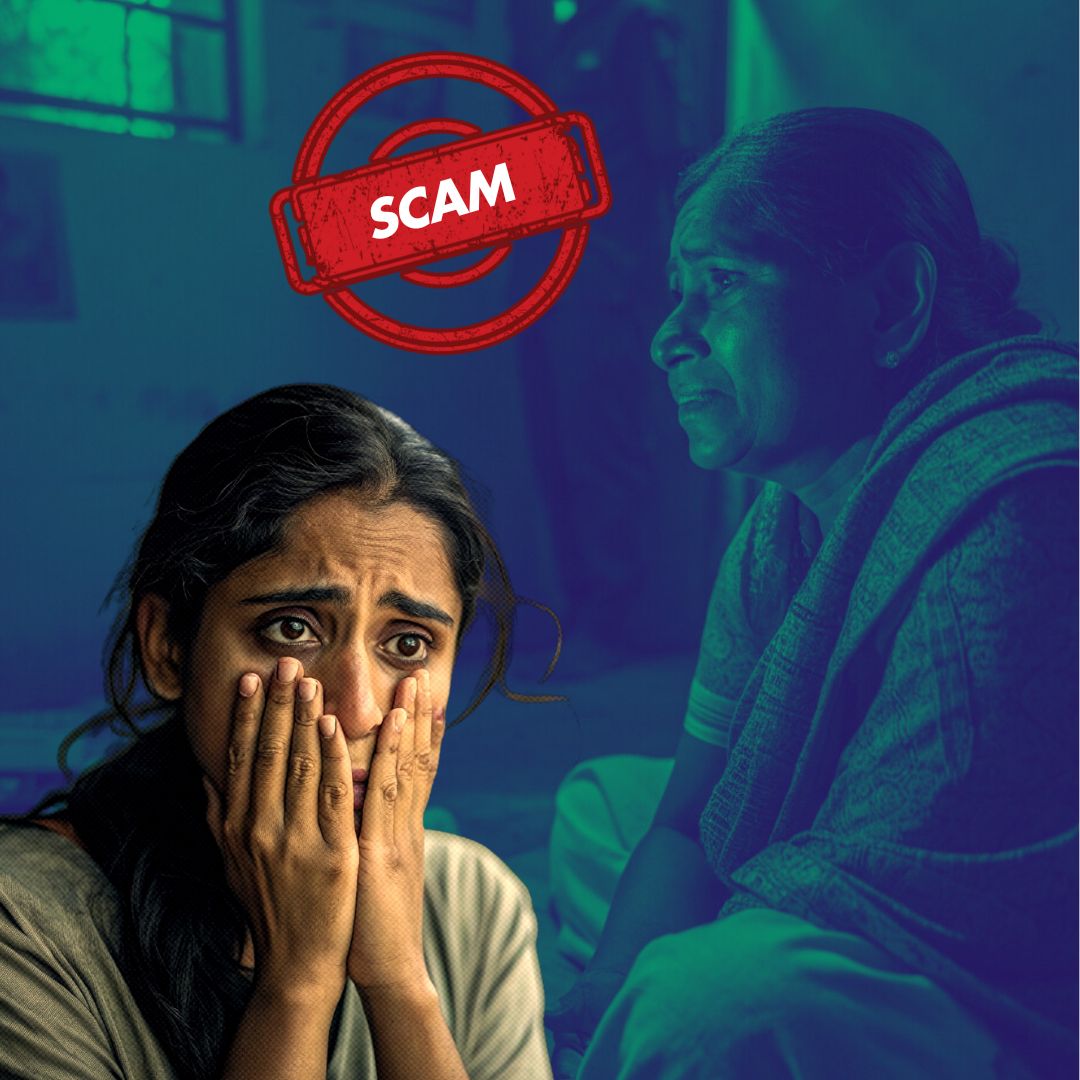A 40-year-old woman from Mangaluru lost Rs 3.16 crore in a sophisticated cyber scam, where fraudsters impersonated police officers and a public prosecutor to convince her she was under a “digital arrest.”
Over 17 days, she was coerced into transferring money for supposed verification linked to alleged criminal misuse of a SIM card in her husband’s name.
The fraud only came to light after she confided in her children, prompting her to file a complaint with the Cyber Economic and Narcotics Crime (CEN) police. Authorities and cybersecurity experts have since issued public warnings and shared critical advice to help citizens avoid similar scams.
Digital Arrest Scam: Exploiting Fear and Isolation
The ordeal began on June 6, when the woman received a call from someone claiming to be an officer from the National Crime Reporting Portal (NCRP). The caller alleged that a SIM card registered in her husband’s name was involved in criminal activity.
The call was then transferred to individuals posing as a Mumbai police sub-inspector and a public prosecutor, who used official-sounding language, threats of legal action, and psychological manipulation to gain her trust and compliance.
Over the next 17 days, the scammers maintained constant contact, instructing the woman to transfer funds multiple times amounting to Rs 3.16 crore under the pretext that the money was required for verification and would be refunded.
They repeatedly warned her not to discuss the matter with anyone, effectively isolating her and increasing her vulnerability. The fraudsters’ tactics included using video calls, fake documents, and even fabricated case files to appear more convincing and intimidating.
Modus Operandi: A Growing Threat to Consumers
Police officials have confirmed that such “digital arrest” scams are on the rise across India. Criminals are leveraging technology to impersonate law enforcement and judicial authorities, often using video calls on platforms like Skype or WhatsApp to display fake badges, uniforms, and documents. Victims are told they are under investigation for serious crimes and must comply immediately to avoid arrest or legal trouble.
In this case, the woman was told not to disclose the situation to anyone, a common tactic used to prevent victims from seeking help or verifying the authenticity of the claims. The scam only unraveled when the fraudsters stopped responding after the final payment, prompting the woman to confide in her children. Realising she had been duped, she approached the CEN police, who registered a case and launched an investigation. Authorities have since reiterated the importance of independent verification and immediate reporting of suspicious calls.
Community Response and Consumer Safety Measures
In the aftermath of the incident, local authorities and cybercrime experts have intensified public awareness campaigns. Consumer safety advocates are urging citizens to:
- Discuss online safety regularly within families, especially with vulnerable groups such as the elderly or those less familiar with digital platforms.
- Utilise official helplines and government portals to verify the legitimacy of any communication claiming to be from law enforcement or government agencies.
- Report suspicious calls or messages to the police or through the national cybercrime reporting portal (www.cybercrime.gov.in).
Community leaders and NGOs are also stepping up efforts to support victims, reduce stigma, and encourage open dialogue about online fraud. Police have provided helpline numbers and resources for public education, while cybercrime units are working to trace the perpetrators and recover lost funds where possible.
Expert Advice: How to Stay Safe from Digital Arrest and Similar Scams
Cybersecurity experts have outlined several practical steps for consumer safety:
- Never share personal or banking details over the phone, especially if contacted unexpectedly. No legitimate law enforcement agency will demand money or sensitive information through calls or video chats.
- Verify the caller’s identity independently by contacting official numbers listed on government websites, not those provided by the caller.
- Stay calm and consult trusted individuals before taking any action. Scammers rely on creating panic and isolating victims.
- Report immediately if you suspect a scam. Early reporting increases the chances of tracing transactions and possibly recovering lost funds.
- Stay informed about common scam tactics by following updates from cybersecurity agencies and law enforcement.
Dr. Rohan Deshmukh, a noted cybersecurity expert, emphasises: “Awareness is the first line of defence. If you receive a threatening call from someone claiming to be a government official, take a step back, verify their credentials, and never act under pressure. Discussing such incidents with family or friends can often prevent a tragedy.”
The Logical Indian’s Perspective
This deeply troubling case is a stark reminder of the urgent need for widespread digital literacy and robust consumer protection in our increasingly connected society. The emotional and financial devastation caused by such scams highlights the importance of empathy, open communication, and community vigilance.
The Logical Indian stands committed to promoting dialogue, kindness, and collective action to prevent such incidents. We urge readers to stay informed, support one another, and report suspicious activities promptly. How can we, as a community, empower ourselves and our loved ones to recognise and resist such manipulative tactics?










